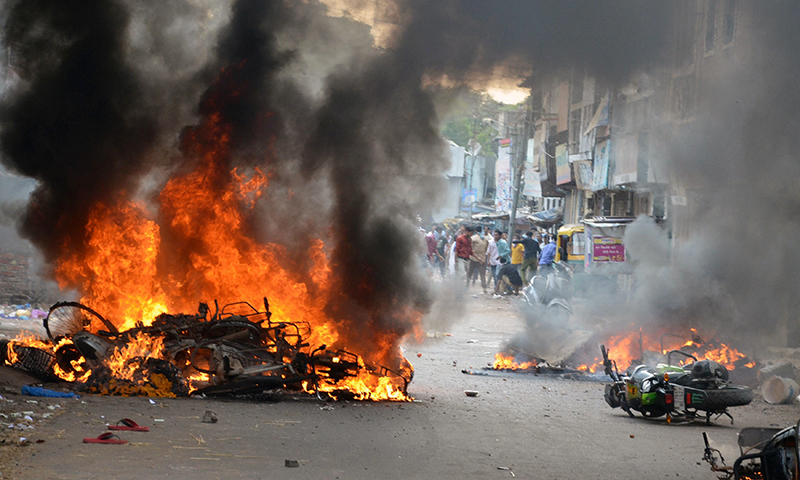
Religious Riots: The Antithesis of Islamic Values
Religious riots have been a recurring phenomenon throughout human history, often leading to widespread destruction and loss of innocent lives. As a society, we must condemn such acts of violence and learn from the past to ensure that we do not repeat our mistakes. In this blog, we will discuss the Islamic perspective on religious riots and how India has been grappling with this issue for decades.
Islam is a religion of peace and tolerance that emphasizes the importance of unity among all people. The Quran teaches us to "hold fast, all together, by the rope which Allah (stretches out for you), and be not divided among yourselves" (3:103). The Prophet Muhammad (peace be upon him) also emphasized the importance of unity among Muslims and non-Muslims alike.
Religious riots have no place in any civilized society. As individuals, we must do our part to promote peace and understanding among all people, regardless of their religious beliefs. We must also hold our governments accountable for their actions and demand that they work towards promoting harmony and unity among all citizens
However, Islamic history is not free from religious riots. The Battle of Karbala, which occurred in 680 CE, is a tragic example of how religious differences can lead to violence. The conflict arose when the Umayyad Caliphate, which was ruling over the Muslim world, refused to recognize the legitimacy of Imam Hussain, the grandson of the Prophet Muhammad (peace be upon him). This led to a violent confrontation that resulted in the deaths of Imam Hussain and many of his followers.
Lessons from Islamic History

Indian Cruel Reality
The Battle of Karbala teaches us that religious differences can be a source of conflict and violence. However, it also teaches us the importance of standing up for what is right, even in the face of adversity. Imam Hussain's sacrifice has inspired Muslims around the world to fight for justice and stand up against oppression.
india has been grappling with religious riots for decades, with the most recent example being the Delhi riots of 2020. These riots were triggered by a controversial citizenship law that many felt discriminated against Muslims. The riots resulted in the deaths of over 50 people and left hundreds injured. The Indian government has been criticized for its handling of religious riots, with many accusing it of not doing enough to prevent them. The government has also been accused of taking a biased stance towards one particular religious group, which has only fueled tensions further.
In conclusion, religious riots have caused untold suffering throughout history, and it is up to us to ensure that they do not happen again. We must learn from the lessons of the past and work towards building a better future for all people. Let us say no to religious riots and work towards promoting peace and understanding among all people.
